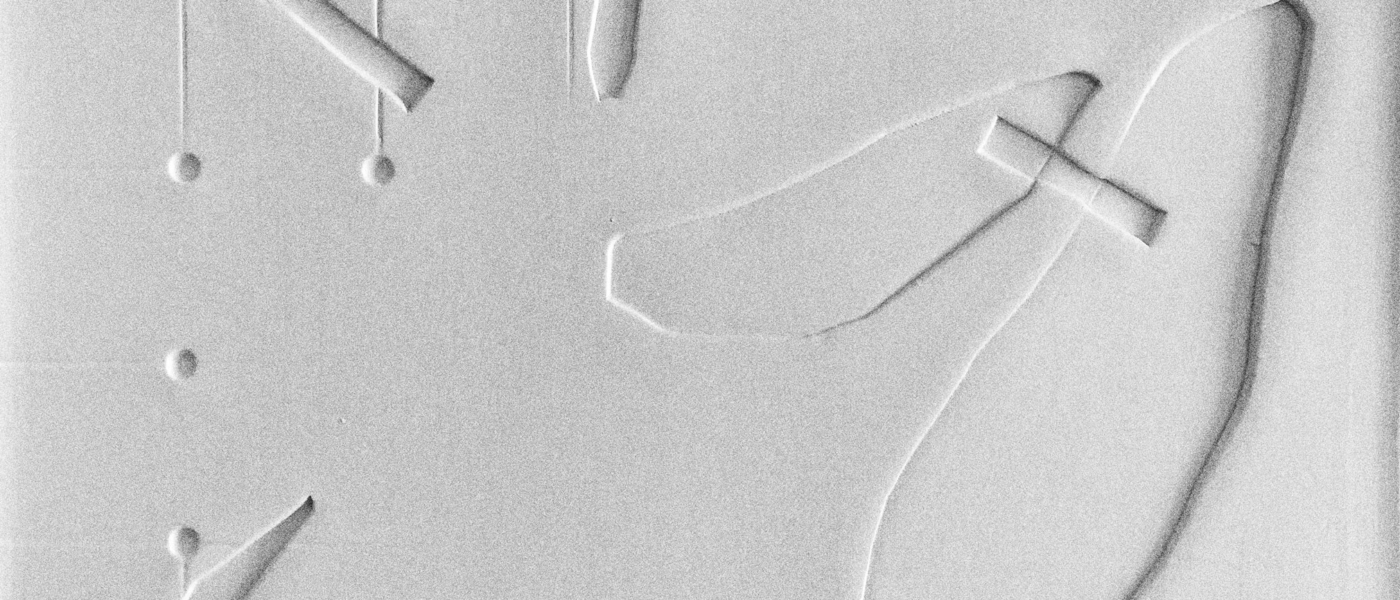
Exhibition Dates: September 8 – October 20, 2023
Opening Reception: Friday September 8, 2023 @ 5 – 8 pm
Artist talk: Saturday September 9, 2023 @ 1pm
In-person and livestream via Zoom
This talk is free to attend and open to the public.
Exhibition Text by Sonali Menezes
//
Martha Street Studio is pleased to present Echoes, a solo exhibition by Alana MacDougall (MB).
Echoes explores remembered, reinterpreted, and reimagined imagery generated by medical imaging technology. The schematization of forms allows them to defy easy categorization, simultaneously suggesting the cells, organs, geological formations, or the celestial. In addition to reflecting on the abstract nature of medical imagery, the work explores mortality, and the vulnerability of our bodies in the context of illness and western medical intervention. The artist draws on her experience as a patient to explore psychological impacts of cultural and systemic norms on communication and agency.
Echoes investigates this schematic imagery through linocut embossing, silkscreen printing, drawing, and ceramic sculpture (often in combination). MacDougall combines a plurality of methods of production in this exhibition. Sometimes beginning by drawing before scanning, printing, and reworking with drawing again, MacDougall also uses materials and processes connected to linocut printing to emboss images onto porcelain clay. Print strategies are explored in three dimensions through hand-altered cast-porcelain multiples.
//
Through sculpture, installation, drawing, and printmaking, MacDougall reflects on mortality, and the vulnerability of our bodies in the context of illness and western medical intervention. Drawing on her experience as a woman and patient, MacDougall explores the psychological impacts of cultural and systemic norms on communication and agency.
Often, information is withheld and decisions are made without patient consultation. In her essay Illness as Metaphor Susan Sontag writes, “Karl Menninger has observed (in The Vital Balance) that “the very word ‘cancer’ is said to kill some patients who would not have succumbed (so quickly) to the malignancy from which they suffer.” This observation is offered in support of anti-intellectual pieties and a facile compassion all too triumphant in contemporary medicine and psychiatry. “Patients who consult us because of their suffering and their distress and their disability,” he continues, “have every right to resent being plastered with a damning index tab.” Dr. Menninger recommends that physicians generally abandon “names” and “labels” (“our function is to help these people, not to further afflict them”)—which would mean, in effect, increasing secretiveness and medical paternalism,” (Susan Sontag, Illness as Metaphor, p.6-7).
Paternalism in western medicine and intervention has a negative effect on patient self-efficacy and agency. A loss of control over the physical body and pushing through the body’s barriers (through the skin using physical implements or metaphorically using imaging technology) magnifies this feeling (in a circumstance where there is already a significant, knowledge, access, and power imbalance). Withheld information and insufficient communication by medical professionals increases the sense of a loss of control.
MacDougall explores the abstract nature of medical imagery throughout Echoes. She is interested in our instinct to look for reflections of ourselves in everything, and in exploring the psychological impact of images of our bodies appearing foreign or unrecognizable. What we see on screens or in scan-generated imagery looks nothing like the bodies we know. The common human tendency, pareidolia, leaves us searching for the familiar shapes and patterns – especially for faces and recognizable figures – in all visual stimulus, even where none exist. The visual forms MacDougall uses are derived from echocardiograms, angiograms, ultrasounds, MRIs, positron emission technology, and cytology. She reduces these forms to simplified shapes (sometimes relying upon memory) to read as organs, islands, celestial bodies, or cells. The forms shift in scale and move fluidly, maintaining ambiguity to both the medically trained and untrained eye. Porcelain, paper, steel and glass are the materials used to embody these explorations and reflections in an effort to communicate feelings of tension, precarity and vulnerability. The unmediated physical connection with her materials means their surfaces and scale are informed directly by her body. Sometimes, the shapes of her ceramic forms are manipulated with her breath.
//
Alana MacDougall holds a Bachelor of Fine Art (Honours) from the University of Manitoba (2014) and a Master of Fine Art from the Pratt Institute in Brooklyn, New York (2016). She is a multi-disciplinary artist working primarily in drawing, print-making, and sculpture. Alana explores ideas around the body, communication, and the abstract nature of medical imagery. She has exhibited in Canada, the United States, and Australia and has taught as a sessional instructor at the University of Manitoba since 2018.
Exhibition Documentation photos below by Sarah Fuller